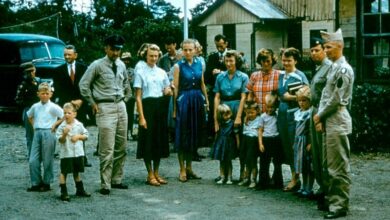Polls find record low church attendance, majority of Republicans support same-sex marriage
For the first time, religious service attendance has fallen below 50 percent while a majority of Republican voters say they support same-sex marriage. According to a Public Religion Research Institute polls, less than half of self-identified Republicans endorsed same-sex marriage in 2019, but in 2020 that number increased to 51 percent. Gallup handled the church attendance polls.
Many religious respondents remain opposed to what the study described as “pro-LGBTQ policies,” however. As PRRI pointed out, the average demographic of those “who are completely against pro-LGBTQ policies are older, more likely to be Republicans, feel more favorably toward former President Donald Trump and are more likely to be white and Christian than the American population and those who are in favor of these pro-LGBTQ policies.”
Even among religious people, however, the rate of support for LGBTQ policies is greater among younger people. According to the study results:
“Younger members of religious groups who are under age 50 are more likely than their older counterparts to favor LGBT nondiscrimination laws. The gap is larger among white evangelical Protestants (73 percent of those under age 50, 56 percent of those over age 50), other Protestants of color (80 percent of those under age 50, 61 percent of those over age 50), black Protestants (80 percent of those under age 50, 66 percent of those over age 50) and white mainline Protestants (88 percent of those under age 50, 75 percent of those over age 50). The gap is around eleven percentage points or less among white Catholics (83 percent of those under age 50, 72 percent of those over age 50), Hispanic Protestants (71 percent of those under age 50, 62 percent of those over age 50), Hispanic Catholics (84 percent of those under age 50, 75 percent of those over age 50), and religiously unaffiliated Americans (86 percent of those under age 50, 76 percent of those over age 50).
The number of people who self-identify as LGBTQ has skyrocketed among younger generations recently, according to a recent Gallup poll.
While a connection has not yet been substantiated, the views on the issue could be related to church attendance and faith.
For the first time since Gallop began polling, fewer than 50 percent of Americans say they belong to a house of worship.
Forty-seven percent of Americans said they belonged to a church, synagogue or mosque in 2020, Gallup also announced this week, the lowest number in the poll’s eight-decade trend. The figure is down three percentage points from 2018 and a huge 23 points from 1999.
When Gallup first began the poll, in 1937, U.S. church membership was 73 percent and remained near 70 percent before steadily declining near the turn of the century.
According to Gallup, “The decline in church membership is primarily a function of the increasing number of Americans who express no religious preference. Over the past two decades, the percentage of Americans who do not identify with any religion has grown from 8% in 1998-2000 to 13% in 2008-2010 and 21% over the past three years.”
The rest of the decline can be attributed to those who do have a religious preference but don’t attend church, Gallup said.
Part of the reason for the steady drop is generational changes. Younger people tend not to belong to a place of worship compared to older generations, so “those in older generations who were likely to be church members [are] being replaced in the U.S. adult population with people in younger generations who are less likely to belong.”
Currently, 31 percent of millennials say they have no religious affiliation, up from 22 percent ten years ago, while 33 percent of Generation Z have no religious preference.
–Dwight Widaman| Metro Voice








